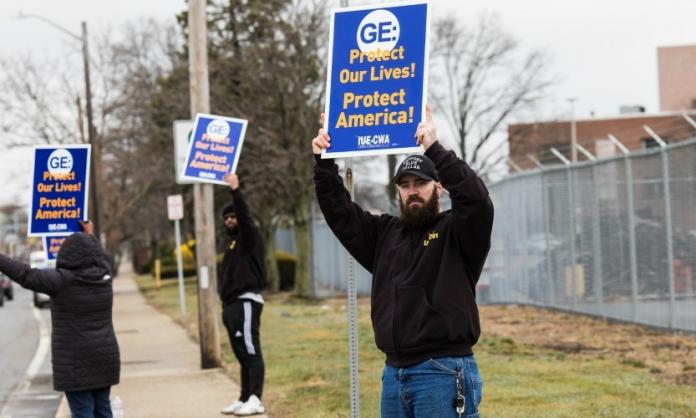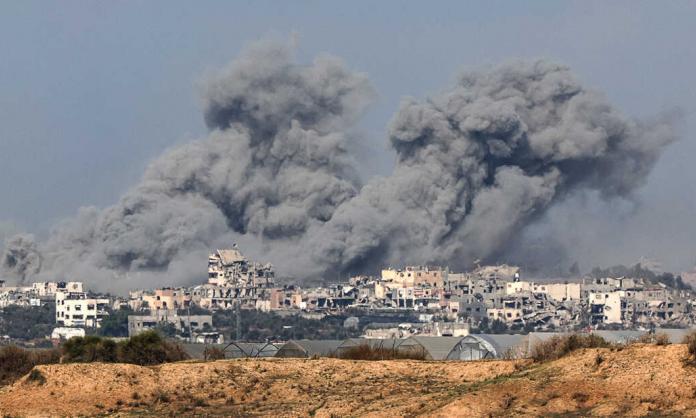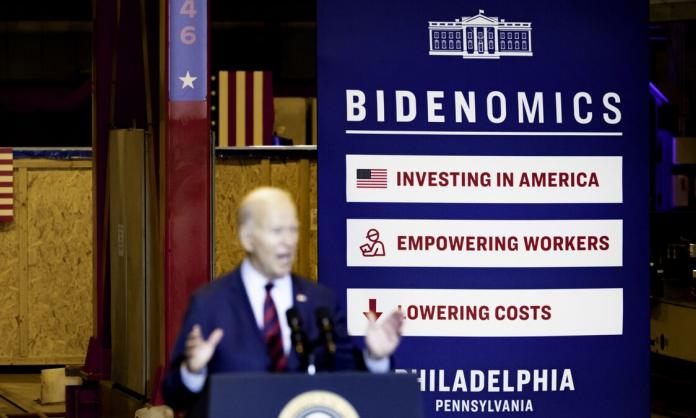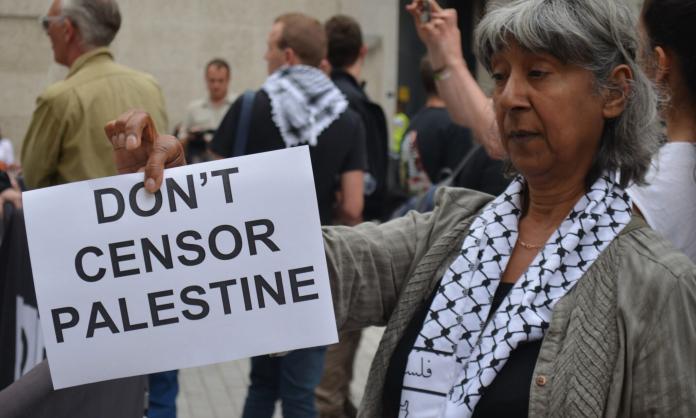Workers at a US manufacturing plant this week protested to demand their factory be retooled to produce ventilators for hospitals overwhelmed by coronavirus patients.
On 27 March, shift workers who usually make jet engines in building 74 of the General Electric factory in Lynn, Massachusetts, gathered in the parking lot of the factory. It was a Friday and, according to the Nation magazine, they decided to use their sick leave to refuse to return to work on Monday unless the factory was cleaned and sanitised. Another shift followed their lead.
After the weekend, they returned to work to find that their demands had been met. Instead of letting up, they added more demands for personal protective equipment and took up a political one: let us produce ventilators.
The company insists that it must prioritise the production of jet engines – what it describes as “mission-critical work” for the US military. The workers nevertheless stood six feet apart (to conform with social distancing) outside the factory in silent protest. At the Boston headquarters of the company, more workers protested.
Some manufacturing companies are increasing ventilator production. Ford and GE say that they will produce roughly 50,000 within 100 days, and General Motors says that eventually it will produce 10,000 per month. But the Johns Hopkins Center for Health Security estimates that up to 740,000 will be needed.
Vice reported Chris Shelton, president of the union that represents the workers, as saying: “Our country depends on these highly skilled workers and now they’re wondering why they are facing layoffs instead of having the opportunity to use their unbelievable skills to help save lives”.
The union produced an information sheet detailing seven factories that could be turned over to ventilator production. Of those factories, most have recently laid off workers or have indicated that they’re about to. The fact sheet notes that the factory in Lynn “at one time employed 20,000 workers. Now only 1,230 work there amid cavernous, empty manufacturing space”. Two of the seven factories listed produce military equipment.
The image of workers being forced to sacrifice their health so they can produce machines to murder other workers tells you half of what you need to know about capitalism. That the Lynn workers resisted tells you the other half.
General Electric has so far denied the workers’ requests to turn over their factories to ventilator production. But the small fight matters. In previous crises, resistance began with minorities. Describing the period of radicalisation following the Great Depression, trade union militant Farrell Dobbs wrote:
“The seeming docility of the workers at a given time is a relative thing ... The tinder of discontent begins to pile up. Any spark can light it, and once lit, the fire can spread rapidly.”











